Do meal replacement shakes really help you lose weight?
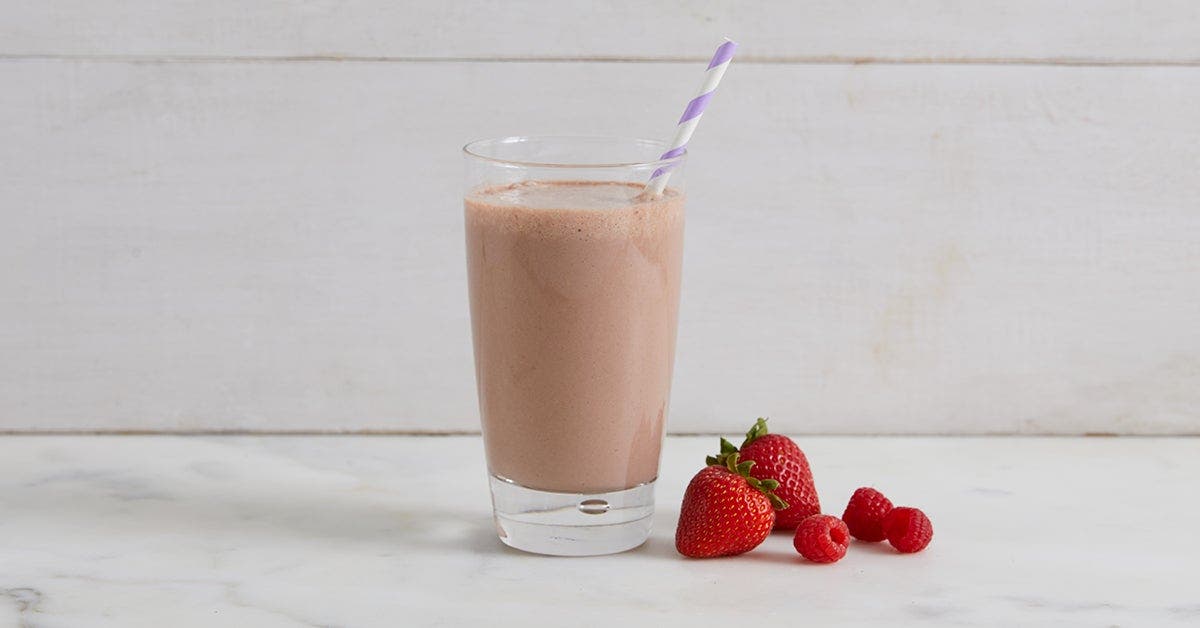
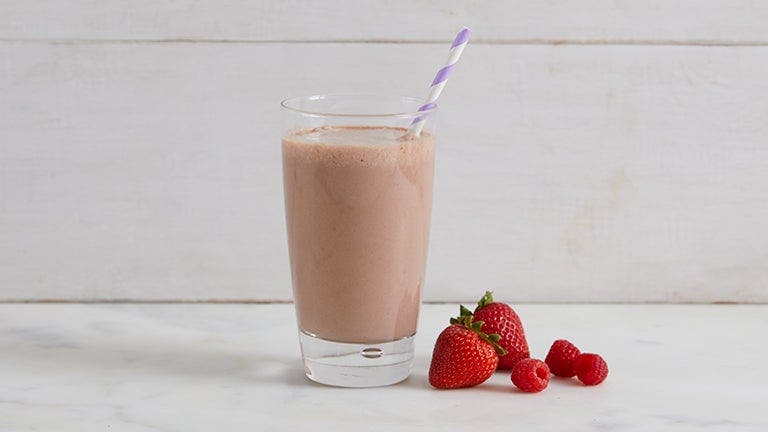
Between grocery shopping, meal prepping, and navigating restaurant menus, it isn’t always easy to work toward a weight loss goal. Enter, meal replacement shakes, which take the guesswork out of making better choices. But do they actually help you lose weight?
While there’s some promising research around meal replacement beverages, healthy weight loss (i.e weight loss that happens gradually and can be sustained) generally requires behavior changes you can practice long-term—meaning you’d have to seriously commit to meal replacement shakes for lasting results. What’s more, “meal replacement shakes don’t fix unhealthy eating habits,” says registered dietitian Jerlyn Jones, MS, nutritionist and spokesperson for the Academy of Nutrition and Dietetics.
Here’s what else you need to know:
The science behind meal replacement shakes
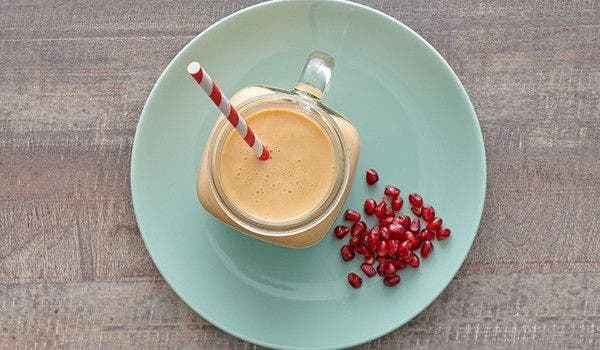
Think of a meal replacement shake as a way to incorporate nutrition into your day whenever you lack the time (or patience) to plan a healthy meal and/or sit down and eat it, says obesity medicine physician Dr. Fatima Cody Stanford, MD, MPH, an educator and policy maker at Massachusetts General Hospital and Harvard Medical School. Sold by the bottle or in a powder designed to be mixed with water or the milk of your choice, most meal replacement shakes provide a variety of important macronutrients—that is, carbohydrates, protein, and fat—and micronutrients, i.e., vitamins and minerals. However, “all shakes aren't created equal,” Dr. Stanford says—and they can’t completely replicate a healthy diet full of whole foods containing antioxidants and the plant compounds known as phytochemicals, both of which protect your cells, Jones adds.
Meal replacement shakes and weight loss
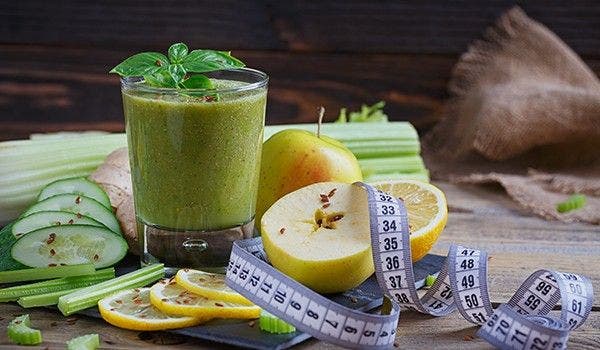
Because they’re portion-controlled and convenient, meal replacement shakes may help you shed pounds, says Annette Frain, BS, head registered dietitian nutritionist at Wake Forest University in North Carolina and spokesperson for The Obesity Society. That said, they’re just one of many tools that can support your weight loss journey.
Including a broad range of meal replacements—like soups, shakes, bars, and portion-controlled meals—in your diet may help you lose weight and keep it off for approximately one year, according to a 2019 review of 23 studies on adults with overweight or obesity published in the journal Obesity Reviews. While this data may seem promising for fans of meal replacement shakes, this research comes with a few caveats:
- Meal replacement shakes for weight loss weren’t the sole focus of the studies examined in this review. Meaning? It’s hard to say whether replacing meals with only shakes leads to long-term weight loss or what combination of meal replacement options is most effective.
- On average, each study subject only lost about three pounds. While losing any amount of weight—and keeping it off—can be beneficial for people with excess weight or obesity, such minor weight loss may not be worth the sacrifice of consistently skipping real meals.
- Subjects lost more weight when they combined meal replacements with other weight-loss strategies. Most of the time, successful weight loss results from practicing a variety of behaviors. If the only change you make is sipping shakes in lieu of meals, you may lose less weight than those who replace meals and attend a support group, for instance.
At the end of the day, if you’re planning on drinking meal replacement shakes to consume fewer calories just until you drop a few pounds, your weight may rebound once you stop drinking them. “Long-term weight loss requires learning to enjoy a variety of healthful foods from all of the food groups,” Jones says.
Potential health benefits of meal replacement shakes
"Shakes can be a better way to get nutrition than skipping the meal altogether,” says registered dietitian Adrien Paczosa, BS, a media representative for the Texas Academy of Nutrition and Dietetics. Here are some more nutritional benefits of adding meal replacement shakes to your diet:
Protein:
Most healthy adults need to consume about 0.8 grams of protein per kilogram of body weight per day to support the body’s natural processes. So a healthy adult woman who weighs 140 pounds needs about 50 grams of protein a day, while a healthy 180-pound man needs about 65 grams of protein a day. While most Americans get enough protein, if you happen to be missing the mark, supplementing your diet with a protein-rich meal replacement shake may help you reach your personal protein needs.
If you’re replacing a meal with a protein shake, Dr. Stanford recommends finding a brand that delivers about 20 grams of protein per serving.
Nutrients:
“Many meal replacement shakes are a good source of vitamins and minerals such as calcium, potassium, iron, and vitamin D, which many people are lacking in their diets,” Jones says. Supplementing premade bottled shakes with your own ingredients—think spinach, which is full of vitamin C, and plain Greek yogurt, which delivers extra calcium, potassium, protein, zinc, and vitamins B6 and B12—can make every sip even more nutritious.
Ideally, a meal replacement shake should provide a variety of micronutrients like B vitamins, calcium, magnesium, zinc, iron, and vitamins A, D, E, and K, which are essential to disease prevention and wellbeing, Jones says.
Convenience:
Be it a quick, easy breakfast or a lunch on the run, a bottled meal replacement shakes can be convenient and easy to transport. During a super busy day (or week, or month…) a quick shake can help keep you satisfied, Frain says.
Potential problems with meal replacement shakes
While certain meal replacement shakes can provide essential nutrients and enhance an already nutritious diet, reaching for the wrong powder or bottle can detract from your efforts. Here’s why:
1. They may contain unnecessary added sugars.
If your meal replacement shake tastes more like a milkshake than a meal, you might want to check the label for hidden sugars like corn syrup, Jones says. To make sure you’re staying within the healthy daily limit for added sugars—about 12 teaspoons—aim for a shake that contains less than 10 grams of sugar per serving, Dr. Stanford recommends.
2. They fall short on nutrients.
When you drink a meal instead of eating it, it’s important that your shake contains the macronutrients—carbohydrate, protein, and fat—of a well-rounded meal, Paczosa says. Fiber, which is a carbohydrate, is also important if you want to feel fuller, she continues, but many meal replacement shakes are lacking in this department. Dr. Stanford recommends looking for a shake that contains around five or more grams of fiber per serving.
3. They can contain hidden servings.
While you’re checking the ingredients label of your shake, it’s important to note the serving size, too, Dr. Stanford says. Oftentimes, there’s more than one serving per bottle. Drink the whole thing, and you could be ingesting more sugar and calories than you bargained for. A proper serving should clock in at around 250 to 350 calories, says Los Angeles-based registered dietician Katie Chapmon, MS.
What is the best meal replacement shake?
In the same way you’d examine a piece of produce or new cereal at the grocery store, it’s important to compare the nutritional facts of meal replacement shakes. After all, just because an Instagram influencer you follow or fitness trainer at your gym swears by a particular brand doesn’t mean it’s a nutritious option or the best one for you. A few things to keep in mind to help you decide:
- The flavor: If you can hardly get through the task of drinking a certain shake, chances are you won’t look forward to sipping your next one. Find brands that have flavors you like so you actually enjoy them.
- The price: In the same way that flavor can determine whether you’ll actually consume a meal replacement shake regularly, price can make a real difference. It’s ever the more reason to find a budget-friendly brand.
- Dietary preferences: Do you need to avoid gluten or whey, manage diabetes, or amp up your protein intake? If you’re tackling specific health issues, talk to your doctor to see if he or she has any meal replacement brand recommendations at the ready.
Still stumped on where to start? WeightWatchers®' protein powders deliver 25 g of protein per serving. Choose from chocolate, vanilla, or strawberry—or try all three flavors!
Meal replacement shakes for men vs. women
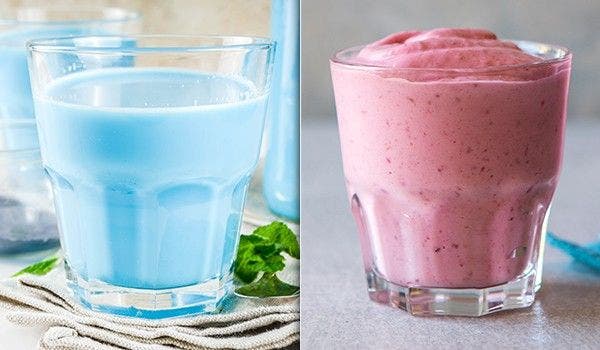
Generally, men tend to have more muscle mass than women and therefore, may have higher daily protein needs, Chapmon says—one reason why some meal replacement shakes may appear to be marketed toward a specific sex.
That said, at the end of the day, the quality (and macronutrient quantities) of your diet comes down to the sum of its parts. If you’re concerned about not getting enough macronutrients or vitamins and minerals for your lifestyle, or feel overwhelmed when it comes to choosing a quality product, guidance from a registered dietitian can be helpful, Frain says.
Otherwise, eating a variety of colorful vegetables, beans, fruits, whole grains, light dairy, and lean proteins should provide the proper amount of vitamins, minerals, and macronutrients for most people, according to US Department of Health and Human Services.
How to use meal replacement shakes
If you want to incorporate meal replacement shakes into your weight loss journey, two small studies published in 2012 and 2018 suggest that replacing one to two meals a day with meal replacement beverages may increase weight loss, Jones says—but it’s important to note that each of these studies were conducted on less than 200 people and only went on for 12 weeks. So while there may be short-term benefits, the long-term advantages remain to be seen.
If you’re thinking of supplementing your diet with shakes (i.e drinking them as snacks between meals rather than instead of breakfast, lunch, or dinner), Jones recommends sticking to half a serving. Drinking a full shake between meals may ultimately lead you to consume more calories than your body needs, which could contribute to weight gain.
The upshot: Are meal replacement shakes “healthy”?
What makes a meal replacement shake healthy (or unhealthy) is the quality of its macro and micronutrients and how it fits into the context of the rest of your diet.
That said, if your goal is to lose weight, incorporating both dietary changes and increased physical activity levels will set you up for the most success, according to a 2009 meta-analysis of 18 randomized trials conducted on overweight individuals published in the journal Obesity Reviews. In other words, if the occasional meal replacement shake is part of a lifestyle overhaul, it can be a smart choice, especially in conjunction with a weight loss support program, Jones says.
Ultimately, it may be smarter to focus on eating whole foods so you can make healthy choices in the absence of meal replacement shakes, according to Paczosa. After all, eating should be about both health and enjoyment.
--
Jessica DiGiacinto is an associate editor at WW. A health and wellness writer and editor based out of New York, she’s contributed to Popsugar, Bulletproof 360, and Galvanized Media, among other media outlets.
--
This article was reviewed for accuracy in July 2021 by Stephanie L. Fitzpatrick, PhD, senior manager for multicultural programs at WW. The WW Science Team is a dedicated group of experts who ensure all our solutions are rooted in the best possible research.
